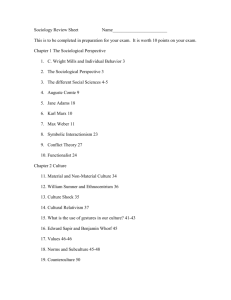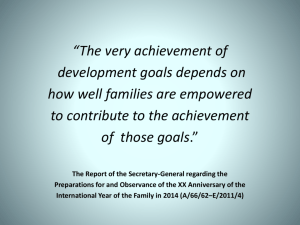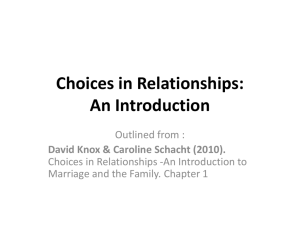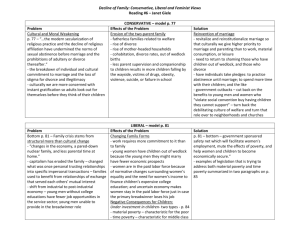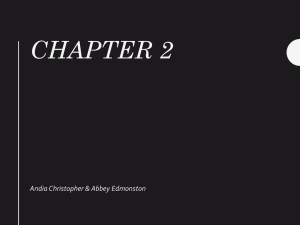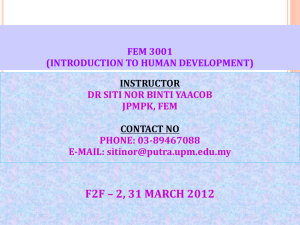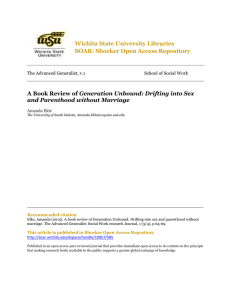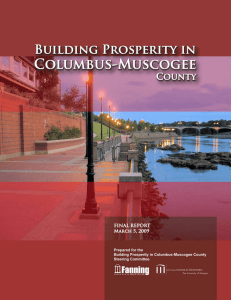Study Guide- Second Quarter Exam The Second Quarter exam will
advertisement
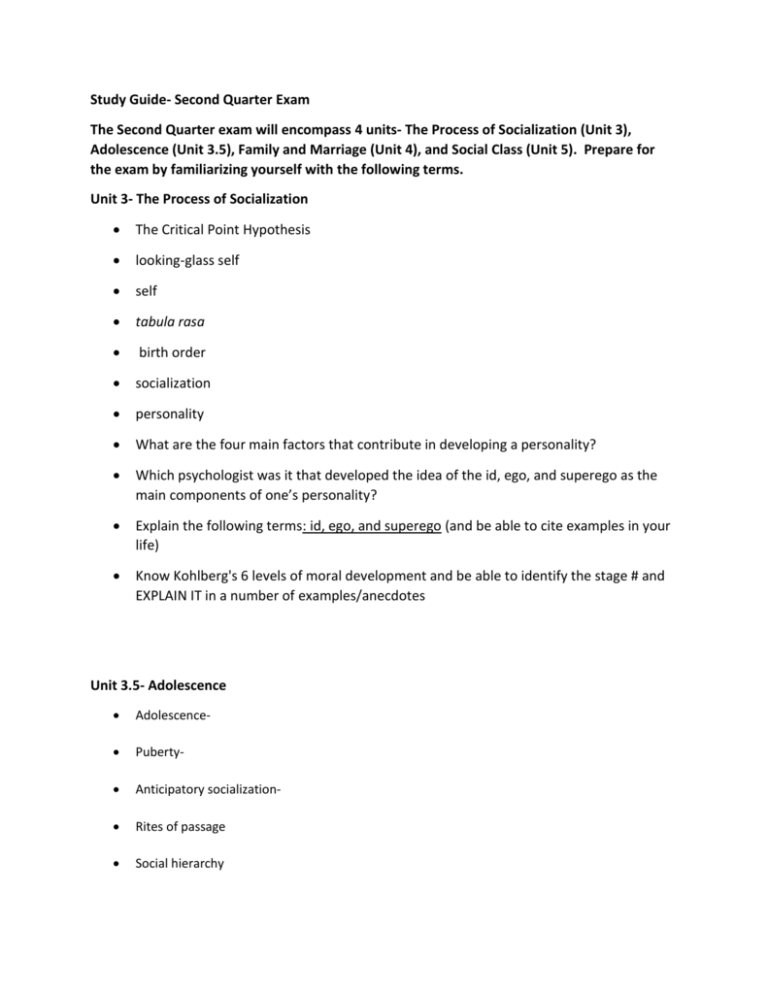
Study Guide- Second Quarter Exam The Second Quarter exam will encompass 4 units- The Process of Socialization (Unit 3), Adolescence (Unit 3.5), Family and Marriage (Unit 4), and Social Class (Unit 5). Prepare for the exam by familiarizing yourself with the following terms. Unit 3- The Process of Socialization The Critical Point Hypothesis looking-glass self self tabula rasa birth order socialization personality What are the four main factors that contribute in developing a personality? Which psychologist was it that developed the idea of the id, ego, and superego as the main components of one’s personality? Explain the following terms: id, ego, and superego (and be able to cite examples in your life) Know Kohlberg's 6 levels of moral development and be able to identify the stage # and EXPLAIN IT in a number of examples/anecdotes Unit 3.5- Adolescence Adolescence- Puberty- Anticipatory socialization- Rites of passage Social hierarchy Unit 4- Family and Marriage Family of Orientation Family of Procreation Marriage Nuclear Family Extended Family Systems of Descent Patrilineal Matrilineal Bilineal Systems of Authority Patriarchy Matriarchy Egalitarian Marriage Composition Monogamy Polygamy Polygyny Polygamy Exogamy/Endogamy Incest Taboos (What are they? Why do they exist? Sandwich Generation Unit 5- Social Class Important terms and concepts: Income and wealth Income distribution Vertical, horizontal, and intergenerational mobility Poverty and Poverty level (who is most likely to be poor? How is poverty level calculated?) Social Classes (characteristics and $$$ cut offs of each) Prestige (what is it? What jobs are prestigious? What are some qualities of a prestigious job?) Old Money and New Money Effects of social class (be able to name at least one way that each of the following are affected by a person's class: o Physical health, mental health, politics, education, family, crime, religion Especially focus on: o Identifying which social class a job would be (and why/how) o o For example: a nurse is a member of the lower middle class (because it requires some schooling/training ~usually a bachelors or technical school, makes a middle level income, is of intermediate prestige, and is a job with some autonomy, but not as much freedom as the Upper Middle class professionals, or Capitalist brokers) Differentiating between the classes (“Expensive to be Poor reading”) What are the worries/concerns of a member of the working class? How is life different for the working class vs. the upper middle class? Poverty in the US (in class reading and worksheet with questions) What groups are the most poor in the US? Where is poverty the worst in the US Short Essay Topics: (some or all of these essays will appear on the unit test and other assessments) 1. Characteristics of Social Class and Effects of Social Class (being rich or poor)
